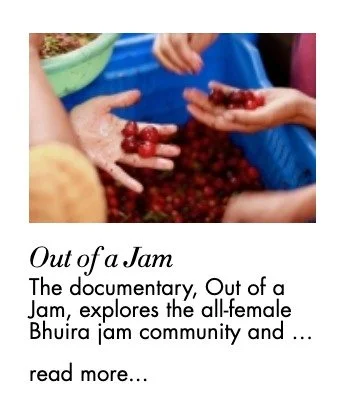DIRECTOR’S STATEMENT
The first time I heard of these women was when I was eating their jams, at a plush Mumbai restaurant. It was the best I ever had, and so it made me curious about this unknown brand. I then did my research and read about these rural women who make these jams. In India jam is considered a fairly European concept and not everyone knows about it. So I thought to myself "How do they not just know about jams but also make them so well?" On digging a bit further I learned about Linnet, who started the factory. It all seemed so interesting that I decided to go to their mountain village to meet them.
Reaching there was no easy task. It was a pitch-dark long wobbly drive. Their village, Bhuira did not have a tar road or a single street light. It seemed in the middle of nowhere. The last tar road was 15 km away. I learned that these women had to literally climb mountains to reach their workplace every day. So when I finally saw them make the jams, it wasn't so much about the jams but the women who were making them that fascinated me. Neither the difficult terrain nor the uncooperative social circumstances stopped them from making Bhuira Jams a success story. Instead, they were full of life, ever-smiling and eager to learn.
Truly the simple act of earning one's own money changes everything, especially if it's a woman. It has a ripple effect on society. Through making these jams, they've broken out of the vicious cycle of poverty -illiteracy -castism that they were stuck in for generations.
Today these women aspire to grow and have the confidence to face the world. It is such an overwhelming moment when a woman realizes that she is equal in this society. Through 'Out of a Jam', I hope to portray this expression of the human spirit and find a connection with everyone who's looking to get inspired.


